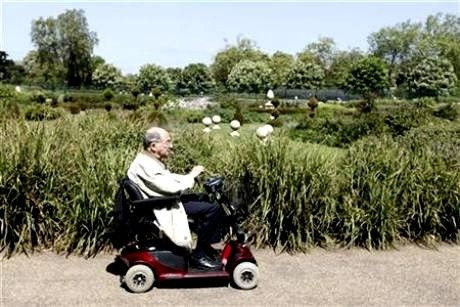Living to be 100 Years Old: is it in the Genes?

About to indulge in some ice cream? Don't feel too guilty.
Researchers have found that genes play a bigger role in determining longevity than lifestyle choices.
The "Einstein's Longevity Genes Project" at the Albert Einstein College of Medicine in New York questioned a group of nonagenarians and centenarians about their lifestyles, and found that their habits were not necessarily any better than those of the general population.
The results were published Wednesday in the online edition of the "Journal of the American Geriatrics Society."
The researchers interviewed 477 Ashkenazi Jews who were living independently. The youngest participants were 95 years old, the oldest, 112. Seventy-five percent of the participants were women.
Dr. Nir Barzilai, the director of the Institute for Aging Research, led the study. "This study suggests that centenarians may possess additional longevity genes that help to buffer them against the harmful effects of an unhealthy lifestyle," he said in a hospital press release.
But just because these centenarians are living longer does not mean the general population can be so quick to indulge.
"Although this study demonstrates that centenarians can be obese, smoke and avoid exercise, those lifestyle habits are not good choices for most of us who do not have a family history of longevity," Barzilai said. "We should watch our weight, avoid smoking and be sure to exercise, since these activities have been shown to have great health benefits for the general population, including a longer lifespan."
Not all participants were quick to attribute their longevity to lifestyle choices. Some cited a history of longevity in their families. Others believed it had to do with making physical activity a part of their lives. Other factors included being religious or spiritual, having an active life, and keeping a positive attitude.
So stay active, visit a friend, and don't forget to smile.
© Copyright IBTimes 2024. All rights reserved.





















